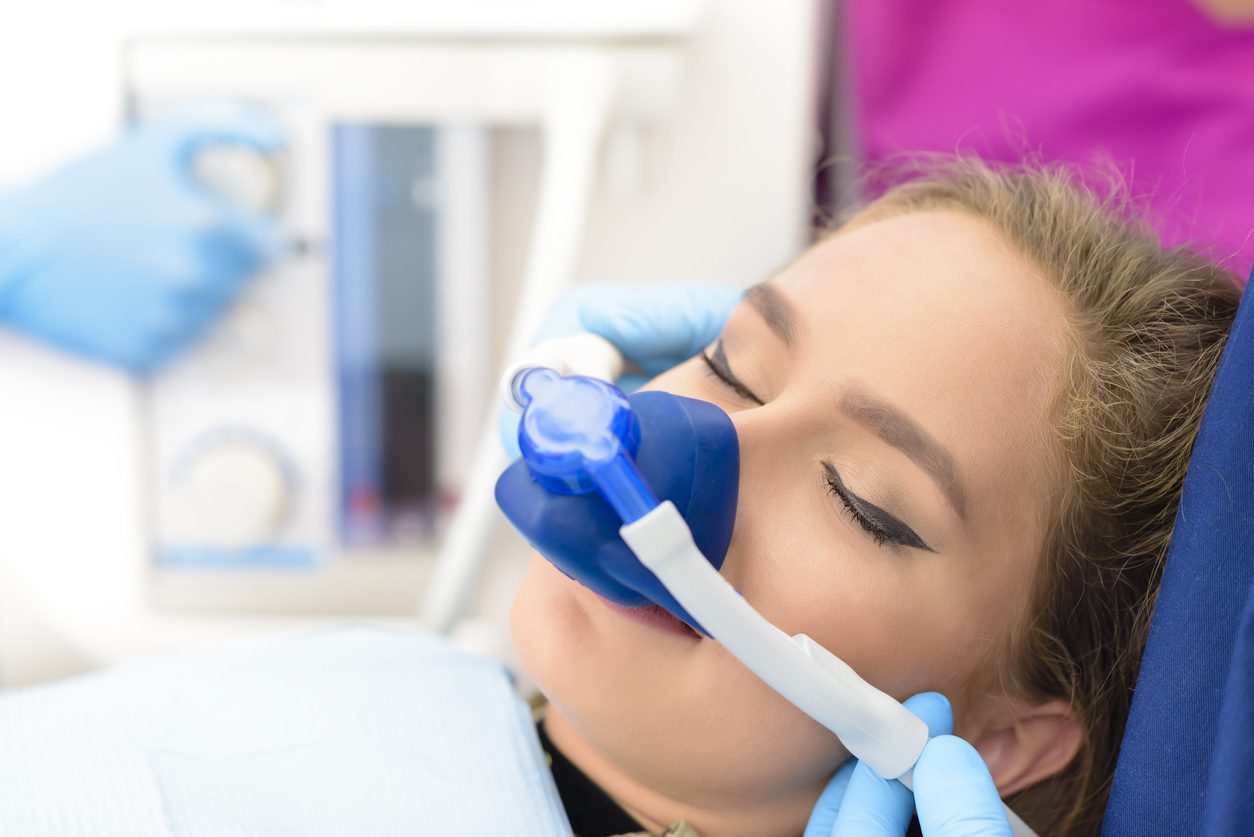Sedation Therapy in Grimsby, Ontario
What Is Sedation Therapy in Dentistry?
Sedation therapy involves the use of medication to help patients relax during dental procedures. It doesn’t mean you’ll be unconscious (unless general anesthesia is used), but you will feel calm, reduce your awareness of discomfort, and may have limited or no memory of the treatment.
Common types of dental sedation include:
- Nitrous Oxide (“Laughing Gas”) — inhaled sedation for mild to moderate anxiety, with quick recovery
- Oral Sedation — medication taken by mouth to induce relaxation; effects range from mild to moderate sedation
- Intravenous (IV) Sedation — deeper sedation administered by injection, controlled by dental anaesthesiologists or trained dentists
- General Anesthesia — full unconsciousness for complex surgeries, usually in a hospital or surgical centre setting
Our team carefully evaluates your health history and procedure type to recommend the safest, most effective sedation method for you.
Take the First Step Toward Anxiety-Free Dental Care
Don’t let fear keep you from the healthy smile you deserve. At Dentistry at Waterview, sedation therapy helps you relax and receive expert dental care comfortably—right here in Grimsby, Ontario.
Call us at (289) 235- 8188 or Book Online to schedule a sedation consultation.
Let us help you overcome dental anxiety and enjoy your visits again.

Benefits of Sedation Therapy
- Reduces Anxiety and Fear: Makes dental visits manageable for patients with dental phobia or past trauma.
- Enables Complex Treatments: Allows longer, more involved procedures to be completed comfortably in fewer visits.
- Minimizes Discomfort and Pain: Enhances pain control beyond local anesthesia.
- Improves Dental Health: Helps patients avoid delaying care due to fear, preventing worsening dental problems.
- Safe and Controlled: Administered by trained professionals with full monitoring.
What to Expect During Sedation Therapy
- Consultation & Medical Review: We discuss your anxiety levels, health history, and treatment needs to tailor sedation safely.
- Pre-Procedure Instructions: You may be asked to avoid eating or drinking for several hours before sedation.
- Sedation Administration: Depending on the type, sedation is administered just before or during your procedure.
- Monitoring: We continuously monitor your vital signs and comfort throughout.
- Recovery: You’ll rest briefly afterward; nitrous oxide wears off quickly, while oral or IV sedation may require a longer recovery period and a companion to drive you home.

Client's Testimonies
Schedule Your Dental Visit Today!
Frequently Asked Questions about Sedation Therapy for dental treatment
What is Sedation Therapy in Dentistry?
Sedation therapy uses safe, controlled medication to help patients relax during dental procedures. It’s especially helpful for those with dental anxiety, sensitive teeth, or lengthy treatments.
What are the Risks of Delaying Dental Treatment?
Progression of Dental Disease
Fear-related avoidance can cause cavities, gum disease, or infections to worsen.
Increased Treatment Complexity
Later treatments may be more invasive, costly, and time-consuming.
Lower Quality of Life
Oral pain and poor dental health can affect eating, speaking, and self-confidence.
What Types of Sedation Are Available?
Common options include:
Nitrous Oxide (Laughing Gas): Mild sedation that wears off quickly.
Oral Sedation: A pill taken before treatment to reduce anxiety.
IV Sedation: Delivered through a vein for deeper relaxation.
General Anesthesia: Rarely used, for complex cases requiring full unconsciousness.
Who Can Benefit from Sedation?
- Patients with severe dental anxiety or phobia
- Those with a strong gag reflex
- Individuals requiring lengthy or complex dental procedures
- Patients with physical disabilities or medical conditions requiring extra care
- Children or patients with special needs
What’s the Best Way to Reach Dentistry at Waterview?
Connect with Your Dentist from Home Today!
At Dentistry at Waterview, we’re committed to making quality dental care accessible, no matter your circumstances. Take advantage of our teledentistry services for consultations, advice, or follow-ups without leaving your home in Grimsby, Ontario.
Call us at (289) 235 – 8188 or Book online today!
Your smile deserves timely care—wherever you are.
Is Sedation Therapy Safe?
Yes. Sedation is carefully monitored throughout your appointment. Your dentist will review your medical history and choose the safest method for you.
Will I Be Fully Asleep During Sedation?
Most forms of sedation keep you relaxed but still responsive. Only general anesthesia makes you fully asleep, and that’s typically reserved for complex surgical cases.
How Do I Prepare for a Sedation Appointment?
Depending on the type of sedation, you may be advised to avoid food or drink for a few hours before treatment. For oral or IV sedation, you’ll need someone to drive you home.















